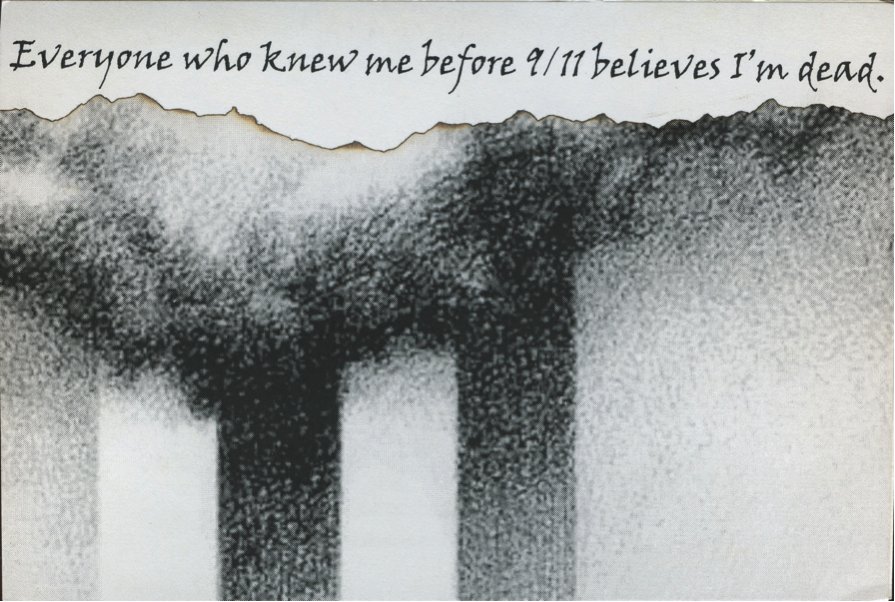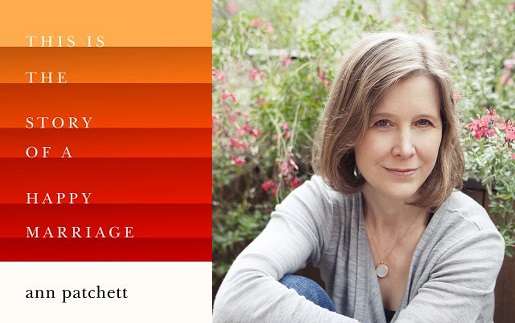I’ve done a handful of radio and newspaper interviews since my book came out (I have one tonight, actually), and every single person has asked me if the book (or its characters) are based on real life. The truth is simple: No.
The core of PEOPLE WHO KNEW ME is fiction, in the truest sense. I did not fake my death on 9/11 and move to California. I do not know anyone who did this. The story was inspired by a couple random things that collided in my psyche. Years after 9/11, I heard about people who faked their deaths for insurance payouts. Then, I heard that one of the most common fantasies people have is leaving behind their current life and starting a new one. My book was already underway when I came across this on Post Secret:

It haunted me because it echoed the words of the character I had created. Very weird, right?
But, even though the core of the novel was from my imagination, there are parts of “me” in the story. For example, as I wrote in essays for Redbook and Psychology Today, I gained insight into caregiving when my husband was taking care of his mother and, yes, that experience informed the narrative in the book. My husband and I are nothing like Drew and Emily, but I could see the potential difficulties for couples. Drew and Emily are young and alone, they have no help, they struggle financially, their communication is poor, and they live in a country that doesn’t offer easy access to caregiving resources. This is a perfect storm of events that leads Emily to the dramatic decision she makes on 9/11. I can’t say I would have made the same choices as her. But I can see how a human being would make those choices. I was intrigued by her flaws and fantasies.
In this way, it’s hard to say if fiction is ever really fiction. Obviously, an author’s thought processes and sense of humor and life perspective are baked into paragraphs. My best friend read my book and said, “I felt like I was talking to you, even though none of this is real. It’s weird.” It is weird. If you know me, you can see how the book is “mine.” There are a few similarities to my own life (I work as a copywriter at an ad agency, as does Emily; I’m a runner, as is Emily), but beyond that, the story has my voice. It is very obviously… me.
This excerpt from Ann Patchett’s This is the Story of a Happy Marriage explains it better than I can:
 “What exactly is a made-up story? I used to take a great deal of pride in the fact that people who read my novels, even all of my novels, wouldn’t really know anything more about me or my life at the end of them than they had known when they started. I’ve written novels about unwed mothers in Kentucky and a black musician in Memphis. I wrote about a gay magician in Los Angeles and a hostage crisis in Peru. The amount of real knowledge that I had on any of these subjects would weigh in about as substantially as an issue of People magazine. In my books, I make up the experiences and the characters, but the emotional life is real. It is my own. I think this is probably true of most novelists. The bright-green space alien with three heads and seventeen suctioning fingers in the latest science-fiction novel may be unrecognizable as a human, while in fact having the same emotional composition as the author’s mother.”
“What exactly is a made-up story? I used to take a great deal of pride in the fact that people who read my novels, even all of my novels, wouldn’t really know anything more about me or my life at the end of them than they had known when they started. I’ve written novels about unwed mothers in Kentucky and a black musician in Memphis. I wrote about a gay magician in Los Angeles and a hostage crisis in Peru. The amount of real knowledge that I had on any of these subjects would weigh in about as substantially as an issue of People magazine. In my books, I make up the experiences and the characters, but the emotional life is real. It is my own. I think this is probably true of most novelists. The bright-green space alien with three heads and seventeen suctioning fingers in the latest science-fiction novel may be unrecognizable as a human, while in fact having the same emotional composition as the author’s mother.”
I admit that, as a writer and reader, I always wonder what parts of books are rooted in some reality (or emotional life, as Patchett describes). After I finished reading Gone Girl, I Googled Gillian Flynn to see if she was married. I was afraid for her husband, quite frankly. She is married, by the way, and he is still living, as far as I can tell. Clearly, I’m just one more person who likes to wonder if the author is the protagonist (even though I find myself constantly explaining that I’m not the protagonist in my book). Recently, Jessica Knoll, author of Luckiest Girl Alive, went public about how she was gang-raped, which is a big part of the story line in her novel (though she also makes it clear that the book is not a memoir in any way). Authors like her link their books to their personal lives. At the other end of the spectrum are authors like M.L. Stedman (The Light Between Oceans, one of my favorite books), who has said she doesn’t share how her own experiences influenced her story because she wants readers to care about the characters, not her.
I read fiction with the assumption that it’s inspired by something in the author’s life, even if the narrative is nothing at all like the author’s life. I understand and respect Stedman’s perspective, but it is fun to hear how stories originate, mostly because it gives me a glimpse into the process for other writers. But, even if an author can pinpoint a couple key personal events that informed their story, the author’s inner life is that mysterious thing that makes no two books the same. It’s that inner life that readers connect with. That, in my mind, is the magic of literature.